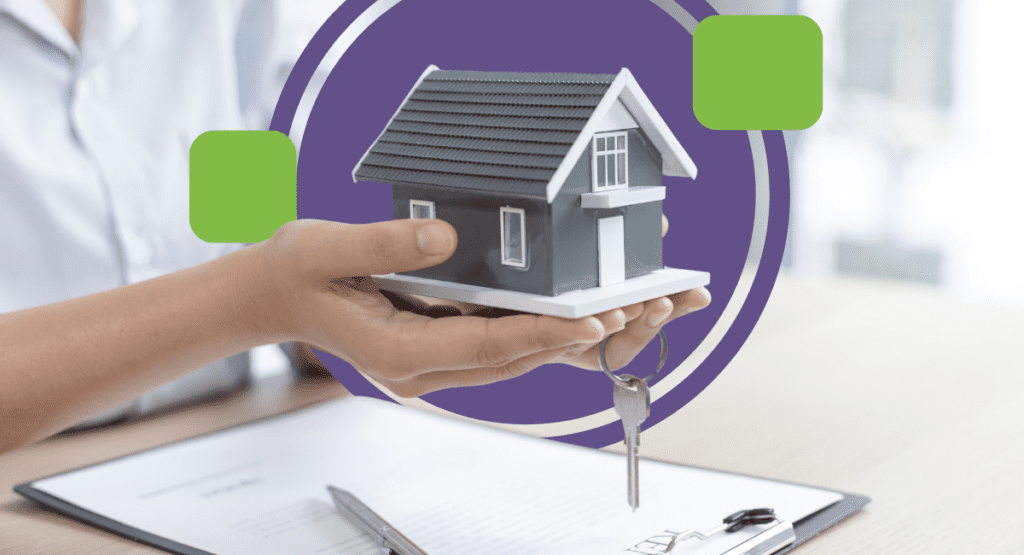Physician mortgages make it easier for doctors to qualify for a mortgage by relaxing some of the traditional mortgage requirements. These relaxed requirements often include:
- No income history required.
- Student loan payments not factored into debt-to-income ratio.
- Higher loan limits than traditional mortgages.
Another significant benefit is the ability to qualify with a low down payment or no down payment at all and still not have to pay private mortgage insurance (PMI). If you're not able to save up for the down payment for a traditional type of mortgage, would it be better to take out a physician mortgage?
If you have a higher investment and financial risk tolerance, you might be better off with a physician mortgage and not bother saving up the cash for the down payment. But saving up for the down payment is likely a better option if you have a lower risk tolerance. Read on to find out how to make this important decision for yourself.
Benefits of little to no money down
Here are some benefits to consider when deciding whether to purchase a home with little to no money down.
Able to buy a home sooner
Saving up the 20% down payment that a conventional mortgage normally requires could take several years. What if your lease is up this year, your family is growing, and you need more space now?
Also, keep in mind that the Fed is expected to continue raising interest rates, which means interest rates might be higher by the time you have saved up the 20% down payment.
Avoid cash drag
When saving up for the down payment, you'd need to stick your down payment money in a safe place like a savings account. Because you'll need it in the near future, you can't use the funds for any other spending goals or potentially higher-earning investments.
Although savings accounts are paying more now than a year ago, the interest you can earn is still relatively low, and you could pay as much as a 35% tax rate on your earned interest.
Allow income to catch up to home-buying power
Banks offering doctor loans believe your career stability and earning potential make you a safe bet to repay your loan. That's why they allow you to take on a mortgage payment that is larger than ideal relative to your income.
A physician mortgage could be worth considering if you want to purchase a home soon and expect your income to rise substantially. That way, you will have a better debt-to-income ratio after your income has increased, but you could still buy the more expensive house you wanted when you wanted to.
What mortgage product do you need?
Your Occupation
Home Price Range
Preferred Down Payment
Stage You're At in the Home Buying Process
When Do You Want a Mortgage Approval?
How Many Banks Would You Like Quotes From?
Any Bankruptcies or Short Sales?
Full Name
Phone Number
State Where You Plan to Purchase
Metro Area Where You Plan to Purchase
Citizenship Status
Communication Preference
Would You Like to Add Any Additional Details?
Downsides of little to no money down
While there are benefits to borrowers to purchasing a home with little to no money down, it's also important to consider the potential downsides before making a decision. Here are some things to keep in mind.
Larger interest rate and monthly payment
While putting less money down may seem like an attractive option, it's important to keep in mind that it can result in a higher interest rate and a larger starting loan balance because lenders are taking on more risk by accepting less money upfront.
For example, if you buy a $500,000 home and put 20% down ($100,000), your loan amount would be $400,000. With no money down, your loan amount is $500,000. A higher interest rate and a larger starting loan balance mean your payment will be significantly higher.
Encourages buying too much house
By now, you may have figured out that banks want doctors to be able to pay little to no money down. Since most lenders exclude your student loan payments from your debt-to-income ratio, you could qualify for an exorbitantly large home loan with an exorbitantly large payment.
Don't fall for that. If you do, you will quickly realize that a significant portion of your income will be consumed by debt because you still have to make your student loan payments. This might mean:
- Sending your spouse to work may be necessary.
- You may not be able to afford private school for your children.
- Your budget may only allow for inexpensive vacations like camping.
- You may need to work for the rest of your life due to large mortgage payments.
To have enough money for other expenses and savings goals, a good rule of thumb is to keep your home purchase price at no more than two times your gross income. You can even aim for one times gross income, especially if you are on the higher end of the income scale.
Another rule of thumb is to keep all monthly housing expenses to no more than 20% of gross income — that includes property taxes, insurance, HOA dues, and utilities. Our Physician Mortgage Loan Calculator can help you calculate housing expenses as a percentage of gross income.
Easier to become upside down on your home
The lower your down payment, the less equity you have in your home, and the greater the chances of owing more than the value of your home. By putting no money down on your home, you will be immediately underwater as you can expect to pay 6% to 10% of the home’s value in closing costs if you decide to sell it.
I know 2008 may feel like ancient history, but it was a stark reminder that home values could fall — and sometimes by a lot. I bet you wouldn't be thrilled if you got an offer for your dream job in another state, but you had to sell your home at a loss of $50,000 in order to move. Of course, life happens. But if you wait to buy until you expect to stay put for at least five to ten years, you give yourself more time to wait out an unfavorable housing market.
Example case – meet Monica and Doug
Let’s say a dermatologist named Monica lives in North Carolina with her husband, Doug, a journalist. She makes $400,000 a year, and he makes $150,000. Monica is on an income-driven repayment plan for her student loans, with her payment equal to 10% of their income.
Their budget for a home is $800,000, and they are debating between a 30-year jumbo physician mortgage requiring no money down at 6.5% and a 30-year traditional jumbo loan with a 20% down payment at 6%.
A 0.5% difference in interest rates may not seem like much, but the total interest paid over the life of the physician mortgage would be $1,020,356 compared to $741,364 with the traditional loan. That's a difference of almost $300,000! Their monthly payment for the physician mortgage would be $5,057 compared to $3,837 if they put 20% down — a difference of $1,220. But getting the traditional loan would require saving $160,000 for the down payment.
Monica is having another baby, and they would like to move sooner than later. Their options are to save aggressively for the down payment or get a physician mortgage, which will enable them to max out her 403(b) and 457(b) accounts at the hospital and Doug's 401(k) now. Otherwise, they would have to wait until they saved enough for the down payment and purchased the home before they could max out their accounts.
Running the numbers
If they take the physician mortgage, they could contribute an additional $160,000 to their retirement accounts that they would not have been able to contribute otherwise. If they earned an average of 7% per year in their retirement accounts, their additional $160,000 of contributions would grow to an additional ~$1.2 million in their accounts (you can use this calculator to run the numbers yourself). On the other hand, they could take the traditional loan and invest the $1,220 they save monthly on their mortgage over 30 years in a brokerage account. In that case, they would end up with almost $1.4 million.
Factoring in student loan payments
It looks like saving up for the down payment allows this couple to be ahead by $200,000, but you also have to take taxes and student loan payments into account. Their income puts them in the 35% federal tax bracket, and the state tax rate in North Carolina is 4.75%.
Their retirement contributions reduce their taxable income, saving them 35% + 4.75% in taxes + 10% in student loan payments for a total of 49.75% of their contributions. So they would save ~$80,000 in taxes and student loan payments from the additional $160,000 contributed. This closes the gap to $120,000.
They also can deduct their mortgage interest on their taxes. Since they are in the 35% federal tax bracket, it's kind of like the government is subsidizing 35% of the interest they pay in the form of lower taxes.
Since they would pay an additional $300,000 in total interest on the physician loan, the additional tax deduction from that interest would close much of the remaining $120,000 gap. Monica and Doug are aiming to reach a multi-million dollar net worth within 30 years, so a difference of tens of thousands might not matter much to them — they will likely take the physician mortgage to buy the home sooner.
Bringing it all together
Our example shows that medical professionals with a higher investment and financial risk tolerance who leverage their retirement accounts might break even either way. However, if you have a lower risk tolerance, you are probably better off saving up for the down payment.
This is because you'd probably prefer to take the guaranteed ~$300,000 interest savings since investment earnings are never guaranteed. Also, if you opt for a more conservative investment strategy, your expected return over time is lower, so investing your down payment money has a lower upside. A lower monthly payment would also benefit individuals with a lower risk tolerance.
What should you do?
Keep in mind that this is not strictly a dollars and cents decision. While it's crucial to consider the numbers and potential financial risks, it's also essential to evaluate your personal risk tolerance, lifestyle and future goals.
You should consider saving up the 20% down payment for a traditional mortgage if:
- You have a lower investment and financial risk tolerance.
- You are in no hurry to buy.
- You want more breathing room in your cash flow.
You should consider taking out a physician mortgage if:
- You have a higher investment and financial risk tolerance.
- You want to buy sooner than you can save up the down payment money.
- You expect your income to rise substantially.
- You are in a high combined federal and state tax bracket, especially if you live in New York or California.
If your student loan debt is an obstacle to your home purchase goals or other life goals, you can schedule time with a student loan consultant. They'll help you devise a strategy to pay as little as possible towards your loans, so you have enough money for the things that matter to you.
If you are ready to compare physician loan options, fill out the form below to get quotes and access to loan officers and brokers to review your options.


